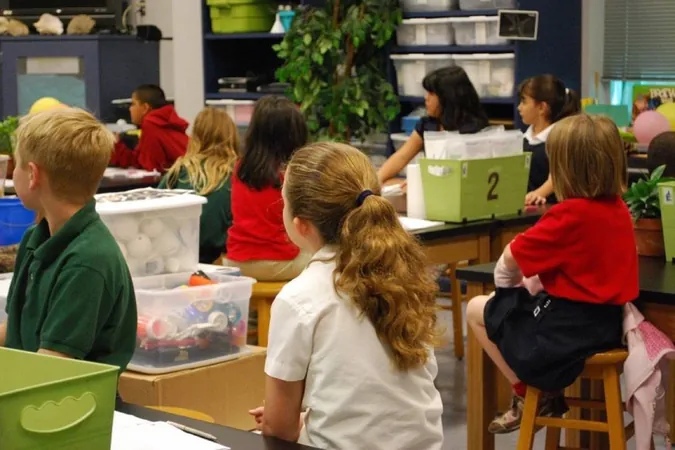
Alarming Trends: South Island Youth Mental Health Takes a Nosedive, New Survey Reveals
2024-09-27
Survey Highlights a Declining Trend in Youth Mental Health
In a revealing new survey conducted by the McCreary Centre Society, the latest findings from the 2023 B.C. Adolescent Health Survey shed a troubling light on the mental well-being of students in grades 7-12 across South Vancouver Island. While a majority of youth continue to report positive overall health, there's a glaring decline when compared to the last decade—raising urgent questions about the future of mental health among local adolescents.
This year, only 58% of youth rated their mental health as good or excellent, a stark drop from 71% in 2018 and a staggering 80% in 2013. The findings are alarming; over a quarter of South Island youth reported suffering from anxiety disorders—higher than both the provincial average and the local figures from five years ago, which were at 22%. Disturbingly, one in five respondents admitted to avoiding extracurricular activities due to anxiety, further emphasizing the negative impact mental health issues are having on their lives.
Impact of COVID-19 on Mental Health
Annie Smith, the executive director of McCreary, pointed out that this survey is the first comprehensive assessment since the onset of the COVID-19 pandemic. She underscored the profound effects the pandemic has had on younger populations, stating, “Across the province, we’ve seen a decline in youth reporting positive mental health and an increase in those reporting they are struggling in this area.”
The Need for Immediate Support Systems
The survey disclosed another concerning statistic: roughly a quarter of students admitted to missing school in the past month due to mental health issues. This underlines the urgent need for immediate support systems within schools and communities to help address these pressing concerns.
Positive Relationships as a Protective Factor
However, there was a glimmer of hope amid the concerning statistics; the majority of youth reported having supportive adults to turn to during crises. A significant 75% indicated they had a family member they could confide in—an increase from 71% in 2018. Moreover, 37% noted they had a trusted adult outside their family, up from 31% in 2018. Smith highlighted the importance of these relationships, stating, “Having supportive adults in their life can be a huge protective factor for youth.”
A Comprehensive Survey Representation
The 2023 B.C. Adolescent Health Survey was comprehensive, with over 38,500 youths aged 12-19 participating across 59 of B.C.'s 60 school districts. Designed in consultation with young individuals, parents, and experts, the survey's data is a robust representation of 98% of students in mainstream public schools across the province.
Call to Action for Communities
As these troubling trends continue to unfold, the need for proactive measures and community engagement becomes increasingly crucial. Schools, families, and local organizations must collaborate to create environments that support mental well-being and encourage youth to seek help when they need it. The future of South Island's youth health depends on it—are we ready to step up?









 Brasil (PT)
Brasil (PT)
 Canada (EN)
Canada (EN)
 Chile (ES)
Chile (ES)
 España (ES)
España (ES)
 France (FR)
France (FR)
 Hong Kong (EN)
Hong Kong (EN)
 Italia (IT)
Italia (IT)
 日本 (JA)
日本 (JA)
 Magyarország (HU)
Magyarország (HU)
 Norge (NO)
Norge (NO)
 Polska (PL)
Polska (PL)
 Schweiz (DE)
Schweiz (DE)
 Singapore (EN)
Singapore (EN)
 Sverige (SV)
Sverige (SV)
 Suomi (FI)
Suomi (FI)
 Türkiye (TR)
Türkiye (TR)